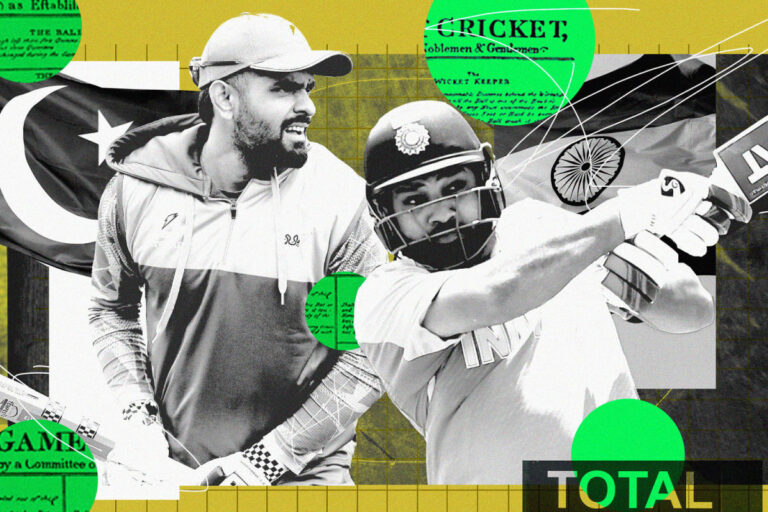This weekend, cricket fans from all over the world are flocking to New York to watch one of the world’s most anticipated sporting events, the World Cup match between India and Pakistan.
And for the first time, for South Asian Americans, the game will be played in their backyard.
As thousands of spectators gather at a new stadium on Long Island on Sunday, fans of both teams are reflecting on the importance of the matchup and how it means more to them than just a sporting event: It could be a chance to reflect on years of tension between the two countries, which were separated by Britain’s partition of the subcontinent in 1947.
“Fans on both sides of the border are really emotional about this,” said Vishal Misra, a Columbia University professor and founder of Cricinfo, a popular cricket coverage website that was later sold to ESPN. “There are political overtones to this. India and Pakistan have been at war…. The game of cricket can act as a proxy.”
Misra, who has been a fan of the Indian national team since he was a child, said that for decades fans have projected a range of emotions onto the match, one of the world’s most-watched sporting events, whenever the two teams meet in the World Cup.
According to The New York Times, 400 million people are expected to watch Sunday’s game, compared with 125 million viewers for this year’s Super Bowl.
When Western fans watch their favorite sports teams, “their enthusiasm and emotion never reaches the level of South Asians,” said Nasser Qureshi, president of the American Pakistan Foundation. “It becomes a question of ego.”
‘Cricket diplomacy’ and on-field tensions
Qureshi, 65, has been a fan of the Pakistan cricket team since he was a child. Growing up in Karachi, he remembers sneaking a portable radio into class to follow updates on matches throughout the day.
Cricket has been a major phenomenon in both countries for decades, he said, a sport that has been both a competitive rivalry between the despised neighbours and a tool of diplomacy. In 1987, Pakistani President Mohammad Zia-ul-Haq launched what was called “cricket diplomacy” after visiting India to watch a match between India and Pakistan amid tensions over the ownership of Kashmir.
The rivalry between the two cricket teams intensified when the two cricketing giants first met at the World Cup in 1992. In the years that followed, the teams met on a number of occasions on the world stage, but rising domestic tensions have meant that the two teams have not played a bilateral match for over a decade.
In 2008, Pakistani terrorists carried out attacks in Mumbai that left 166 people dead. The incident further increased tensions between the two countries, which were reflected on the playing field. India’s refusal to play regular matches against its neighbour meant that a meeting between the two countries in the World Cup created even more anticipation and tensions, Misra said.
“Every game is really exciting,” he said.
Expats bring cricket to America
Misra said cricket has a history in the U.S. It emerged alongside baseball, both of which grew out of the same original sport of rounders.
“But cricket was a British sport and baseball was seen as a British-made sport,” he said.
Misra said the marathon, multi-day matches have put off many American spectators, but there’s a concerted effort to change that, spearheaded by South Asian immigrants. This weekend’s match on Long Island is part of a new cricket format called T20, which will last just three hours.
“Cricket is kind of thriving between Pakistanis, Indians and West Indies,” Qureshi said. “Leagues are being formed all over the country.”
The U.S. cricket team, made up mostly of players from South Asia and the West Indies, pulled off a stunning upset of Pakistan in Dallas on Thursday, beating the perennial powerhouse in a historic victory.
“The U.S. team is playing very well,” Qureshi said. “Yesterday’s game was a huge blow to the morale of the Pakistani fans.”
Misra said cricket is a burgeoning vehicle for bringing together different diaspora communities despite hostility across the subcontinent. He has attended matches before with Pakistani friends and described it as a friendly experience, regardless of any pride in the local team.
“In the U.S., everyone is called Desi, whether they’re Indian, Pakistani or Bangladeshi,” he said. “We go to each other’s restaurants and social events all the time. … There’s casual conversation between Indian and Pakistani fans.”
This article originally appeared on NBCNews.com.

